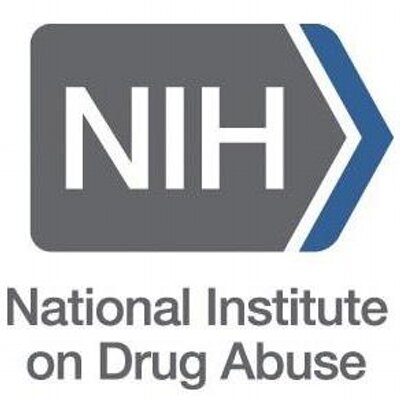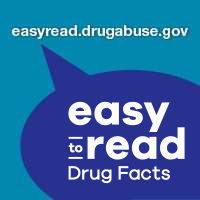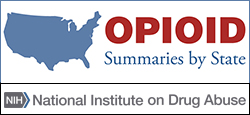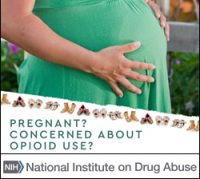Substance Abuse
What is Substance Abuse?
Drug addiction, also called substance use disorder, is a disease that affects a person’s brain and behavior and leads to an inability to control the use of a legal or illegal drug or medication. Substances such as alcohol, marijuana and nicotine also are considered drugs.
Call us at 469-714-0006 or email us at info@exulthealthcare.com
Use of any substance is taking the substance on an occasional level to get a pleasurable response.
Abuse of any substance is taking to cause an affect on your daily schedule and starts impacting other facets of your life.
Addiction of any substance is when daily functioning becomes difficult without consumption of the substance and patient develops physical or mental dependency.
Some common abused drugs but not all include:
- Alcohol
- Depressants
- Cocaine
- Hallucinogens(LSD, DMT)
- Heroin
- Ketamine
- Mescaline
- PCP
- Salvia
- Tobacco
- Factors within a family that influence a child’s early development have been shown to be related to increased risk of drug abuse.
- Genetic risks (drug or alcohol abuse sometimes can run in families)
- Lack of nurturing and parental attachment
- Factors related to a child’s socialization outside the family may also increase risk of drug abuse.
- Inappropriately aggressive or shy behavior in the classroom
- Poor school performance
- Association with a deviant peer group
- Perception of approval of drug use behavior
- Mild tremors or an alcohol withdrawal seizure not accompanied by hallucinations or confusion
- Jaundice (yellow skin and eyes)
- Increasing abdominal girth
- Leg swelling
- Cough that won’t go away
- Continuing feelings of sadness or depression
- Pain at an injection site
- Fever
- Thoughts of harming yourself or others
- Chest pain, rapid heartbeat, difficulty breathing, or lightheadedness
- Severe abdominal pain
- Confusion or ongoing hallucinations
- Severe tremors or recurrent seizures
- Difficulty speaking, numbness, weakness, severe headache, visual changes, or trouble keeping balance
- Severe pain at an injection site (may be accompanied by redness, swelling, discharge, and fever)
- Dark, cola-colored urine
- Any suspicion that you were sexually assaulted while under the influence
Signs of Substance Abuse Disorder?
Friends and family may be among the first to recognize the signs of substance abuse. Early recognition increases chances for successful treatment. Signs to watch for include the following:
- Giving up past activities such as sports, homework, or hanging out with new friends
- Declining grades
- Aggressiveness and irritability
- Forgetfulness
- Disappearing money or valuables
- Feeling rundown, hopeless, depressed, or even suicidal
- Sounding selfish and not caring about others
- Use of room deodorizers and incense
- Paraphernalia such as baggies, small boxes, pipes, and rolling paper
- Getting drunk or high on drugs on a regular basis
- Lying, particularly about how much alcohol or other drugs he or she is using
- Avoiding friends or family in order to get drunk or high
- Planning drinking in advance, hiding alcohol, drinking or using other drugs alone
- Having to drink more to get the same high
- Believing that in order to have fun you need to drink or use other drugs
- Frequent hangovers
- Pressuring others to drink or use other drugs
- Taking risks, including sexual risks
- Having “blackouts”-forgetting what he or she did the night before
- Constantly talking about drinking or using other drugs
- Getting in trouble with the law
- Drinking and driving
- Suspension from school or work for an alcohol or drug-related incident
- Increased drug seeking behavior
- Preoccupation and constant thoughts of either the drug or the high
Types of Commonly Misused or Abused Drugs
Learn about the three most commonly misused or abused types of legal drugs: opioid analgesics, psychiatric, and over-the-counter.
Opioid Pain Relievers
Opioid pain relievers reduce the pain associated with many conditions, including cancer, arthritis and other degenerative conditions. They are also used to alleviate short-term pain related to injuries, surgery, or dental work.
There are different kinds of pain medications, including nonsteroidal anti-inflammatory drugs and opioid analgesics, each type with various advantages and risks. Pain treatment, whether it is acute or chronic, should be individualized for the patient and assessed at frequent intervals, and non-medication therapies should also be considered.
The use of opioid pain relievers exposes users to risks of overdose, dependence, and addiction. Careful consideration should be taken when determining whether an opioid pain reliever is appropriate. Those who abuse them sometimes alter the route of administration (e.g., snorting or injecting) to intensify the effect. The use of opioids, alone or with alcohol or other prescription or illicit drugs, can cause sleepiness, confusion, and slow or stopped breathing leading to overdose and even death.
Opioid misuse and abuse continues to be a major public health problem in the United States. From 1999 to 2013 the rate of death from opioid pain reliever overdose nearly quadrupled. Deaths from heroin have also increased sharply since 2010, with a 39% increase between 2012 and 2013. Examples of opioid pain relievers include drugs that contain the active ingredient codeine, hydrocodone, and oxycodone, to name a few.
Psychiatric Drugs
Psychiatric drugs are prescribed by health care practitioners to treat mental illnesses such as depression, schizophrenia, bipolar disorder, attention deficit hyperactivity disorder, and anxiety disorders. Commonly prescribed medications that have been abused include sedative medications in a class of drug called benzodiazepines, such as alprazolam (Xanax®), clonazepam (Klonopin®), and diazepam (Valium®), and the antipsychotic medication, quetiapine (Seroquel®). These medications alone or in combination with other drugs can produce sedation and euphoria (“high”). Hypnotic medications that help with insomnia can also be abused. An example of such a medication is zolpidem (Ambien®).
Another class of medications used to treat attention deficit disorders includes stimulants. Stimulants may temporarily increase alertness and energy and have a calming and “focusing” effect on individuals with attention deficit hyperactivity disorder. Stimulants include amphetamines such as Adderall® and methylphenidate (Ritalin® and Concerta®). In 2010, according to the National Institute on Drug Abuse, about 1.1 million people abused stimulants, which are used to treat attention deficit hyperactivity disorder and narcolepsy. Side effects of stimulant overuse can include psychosis, seizures, and cardiovascular complications.
Over-the-Counter (OTC) Drugs
OTC drugs do not require a prescription. However, many OTC drugs contain ingredients that can be abused. Learn more about OTC drugs and ways SAMHSA is addressing this issue at the Alcohol, Tobacco, and Other Drugs topic.
Last Updated: 10/27/2015 via SAMHSA.gov
Medication-Assisted Treatment (MAT)
At Exult Healthcare, we offer MAT as part of the detox process for those suffering from addiction. Please see our Suboxone page and our MAT page for more details. One form of MAT is The Sinclair Method.
The Sinclair Method is a treatment for alcohol addiction that uses a technique called pharmacological extinction—the use of an opiate blocker to turn habit-forming behaviors into habit erasing behaviors. The effect returns a person’s craving for alcohol to its pre-addiction state.
In a few months, most people can cut down their alcohol consumption to safe levels and many stop drinking alcohol for good. It is important to comply with the instructions at all times.
Last Updated: 11/21/18 via SinclairMethod
Scientific Understanding of Substance Abuse
Understanding what is drug abuse and addiction and the differences.
Looking at common signs and symptoms of substance and alcohol abuse.
An article overview of the increasing drug problem in the U.S.
Key Benefits of Treatment at Exult
Treatment helps many people—even those with the most severe forms of bipolar disorder—gain better control of their mood swings and other bipolar symptoms.
- Medications – Anti-withdraw Medications
- Therapy
- Group therapy
- Access to on-site psychiatrist
- Providers working together
- Tailored programs to fit your needs
- Afternoon and weekend hours
- Yoga and Mindfulness
When you see that use of drug is affecting personal or work life and crave the drug when you do not have access to it.
Therapy focuses on controlling cravings, avoiding drug seeking behavior, and self-engagement in fruitful activities.
We do take multiple insurances such as United, Blue Cross Blue Shield, Aetna, and Medicare but we suggest you discuss any major medical decisions with your insurance provider.
We offer medication management but we try to keep an open discussion between the client, therapist, and psychiatrist as to the needs of the client.
All patient information for drug rehabilitation are protected by 42 CFR for past decisions.








